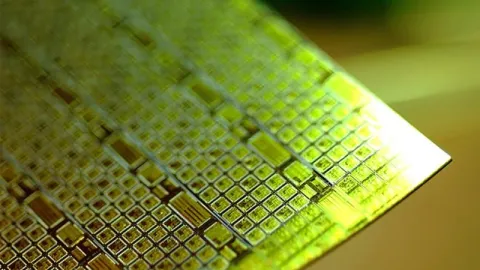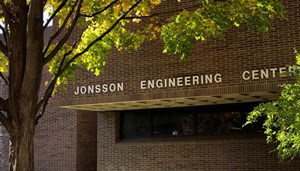
RPI’s research strengths and our region’s manufacturing infrastructure create a major hub for semiconductors.
In 2022, the federal government committed to a $52.7 billion investment in domestic semiconductor research, development, manufacturing, and workforce development, to stimulate the economy, repair global supply chains, and improve national security through the CHIPS and Science Act.
Throughout the 1990s and the early years of this century, our region invested counter to the trend of offshoring chip research and production, with IBM’s longtime manufacturing presence in East Fishkill, the opening of the Albany NanoTech Complex, and the building of GlobalFoundries’ fab in Malta, which will soon be followed by a Micron plant in Syracuse.
The region’s existing strengths give us what Rensselaer President Marty Schmidt ’81, Ph.D., calls an “unfair advantage” in attracting funding and talent.
RPI has historic strengths in microelectronics. Ted Hoff, known as the “father of the microprocessor,” and Curtis Priem, cofounder of NVIDIA, are graduates, and School of Engineering alumni also founded or co-founded Texas Instruments and Fairchild Semiconductor, among others. But we always looking toward the future, and we’re prepared to transform upstate New York into a tech powerhouse.
Consider some of the moves we’ve made in the last year alone:
Together with our partners in the Northeast Regional Defense Technology Hub (NORDTech), we were recently awarded $40 million by the Department of Defense to prototype new innovations with potential military uses, from lab to fab.
As part of the Micron-TEL-National Science Foundation UPWARDS Program, which brings together six universities in the U.S. and five universities in Japan, we’re focused on memory-centric research, curriculum development, and diversifying the semiconductor field.
The NSF’s Future of Semiconductors (FuSe) program, which supports a holistic, co-design approach to both fundamental research and education and workforce training, awarded RPI researchers one of its highly competitive grants.
We have also established a physical presence at Albany NanoTech, which will allow researchers and students to interact daily with the most influential people in the semiconductor industry and to help shape the national microelectronics agenda.
And to address the challenge of rebuilding the nation’s semiconductor manufacturing workforce, we’ve established a new master of science degree in semiconductor technology; introduced a hugely popular elective course called Topics in Microelectronics, which is co-taught by RPI faculty and experts from 10 local companies; and developed partnerships with community colleges to attract new students to the field and create pathways for them to industry or further education.
Semiconductor research at RPI is wide-ranging and interdisciplinary, and our portfolio continues to expand in exciting and even world-changing ways. Learn more about chips at Rensselaer.
